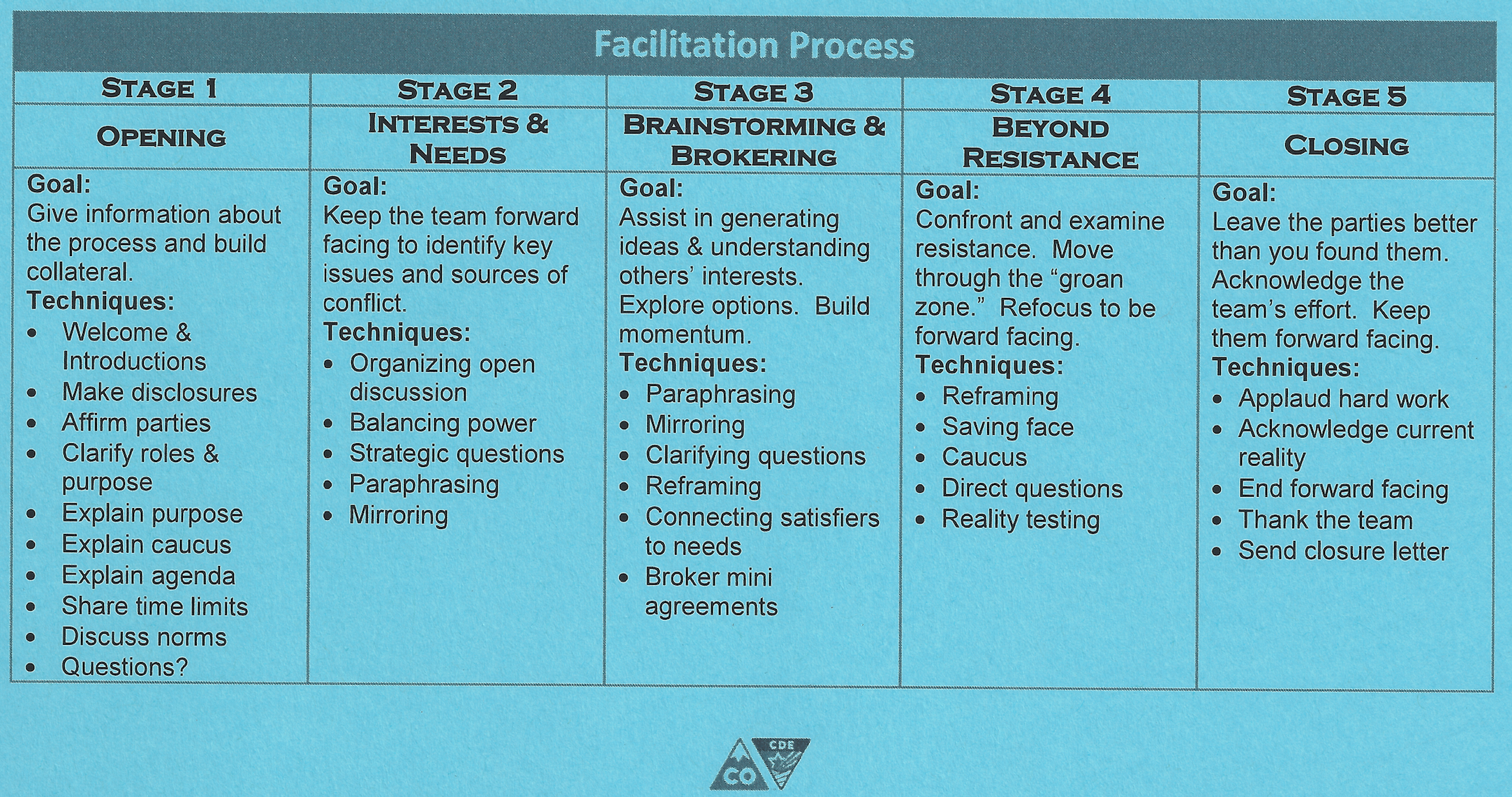Lesson 8: Putting It Altogether for the Twice-Exceptional Student
Improve Outcomes in the ALP Process
In order to improve outcomes in the ALP Process, facilitative skills play a big part in advocating what is needed for twice-exceptional learners to support their strengths. Dr. Mary Anne Fleury with the Alternative Dispute Resolution Project at the Colorado Department of Education reminds us how important it is to use respectful language and to use names, not labels. She has summarized facilitative skills to improve the outcomes in the ALP Process. Her suggestion is that the best solution for resolving conflict and building cohesive teams is through the use of facilitative skills for all stakeholders. In the article: Seven Habits of Highly Effective IEP Teams Eileen Hammar and Anne Malatchi note the following things to keep in mind.
Steps for Facilitative Skills
- Be Proactive: take initiative to recognize responsibility to make things happen
- Begin with the end in mind: envision the future possibilities
- Put first things first: create clear mutual understanding of what needs be accomplished--focus on what, not how; results not methods
- Think win-win: seek mutual benefit in all human interactions
- Seek first to understand, then to be understood: In a truly collaborative process educators will listen to and understand parents; parents will listen to and understand educators. Avoid jargon and use language that everyone working with the student can understand
- Synergize: Effective IEPs are those that have been developed collaboratively by a transdisciplinary team.
- Sharpening the saw: "This is the habit of renewal." (Covey) Celebrate achievements made to energize the collaborative journey with the student.
Eileen Hammar and Anne Malatchi (2018): http://www.ldonline.org/article/6360/
The following stages of the CDE Facilitation Process set the groundwork for a successful meeting:

Remember that the opening sets the tone--utilize powerful tools:
- visuals: aid in understanding, keeps team on track, neutralizes information
- opening statement checklist: welcome and introductions, explain purpose of meeting, agenda and meeting norms (seek agreement if used)
- comprehensive evaluation: educational needs means academic, functional, social or behavioral
- FAPE continuum (Free Appropriate Public Education): Evaluation>Present Levels & Need>Measurable goals>Services in the LRE
- Agenda Development: realistic and need for input from team members, document, communicate agenda well, and include document parent input--Parent Reports should include:
- student strengths
- behavioral performance
- social interaction
- parent concerns
- Skills to consider:
- Identifying Sources of Conflict: find source
- Using strategic questions to identify underlying interests: avoid putting participants on defensive, strive for symmetry in the way parties are treated
- Open Ended Questions:helpful for obtaining more detail (ex. tell me more...)
- Problem Solving Questions: to find out what really motivates the parties (ex. Help me to see why this is important to you)--ask why not try...; Ask what if...
- Directing Traffic Questions: CanI hear from someone who hasn't spoken on this topic, let's move to the person on your right; have we reached consensus on this issue?
- Build a bank of questions that are effective for you
- striving for symmetry in tone and body language
- Remember 93% of communication is nonverbal